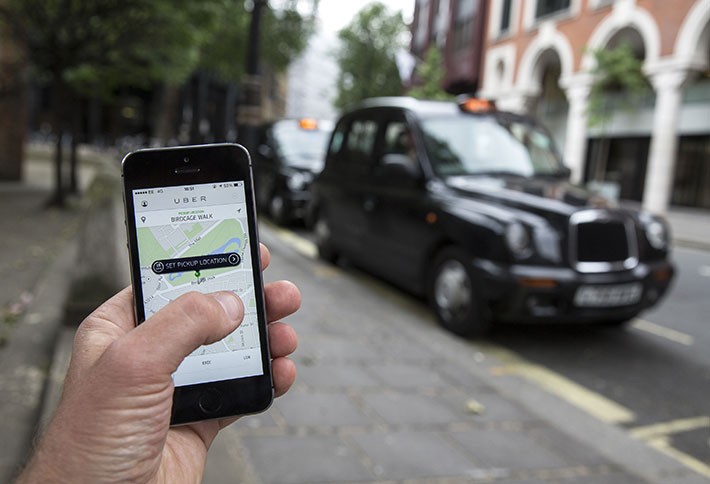It's the Best and Worst of Times for the Sharing Economy

The lofty ideals of two sharing economy powers—Airbnb and Uber—have been tugged down to earth by internal missteps and increased opposition from entrenched interests (i.e. the hotel and taxi lobbies) wary of the upstarts.
Apartment-sharing platform Airbnb squared off at New York's City Hall this week against foes who claim that illegal commercial operators, rather than middle-class New Yorkers, benefit the most from the service. Similar debates are playing out in Portland and San Francisco, where housing advocates argue Airbnb is helping fuel an acute affordability crisis. But regulatory backlash hasn't slowed the company's rise: 550K travelers spent New Year's Eve in an Airbnb-rented pad, up from 2K on the same night just five years earlier.
Meanwhile, in the first of two reports Uber issued today the company reasserted that its drivers in NYC make a median $90K a year in "business income." A breakdown of those reported wages reveals that New York Uber drivers earn $30.35 per hour, double the $15.17 hourly wage of the city's "official" taxi and chauffeur drivers. The spread is less pronounced in Boston, Chicago, DC, LA and SF but the company claims its affiliates outearn traditional cabbies in all of those cities.
Still, critics contend that those numbers omit business costs like gasoline and insurance that old line cabbies "may not" have to cover. And while some of those costs could be shared by both sets of drivers, the crucial sticking point for Uber skeptics is that the company's drivers all have to pay for their own vehicles.
Even if the wage report failed to clear up exactly how lucrative an Uber gig is, the second just-released report (based on an anonymous survey of 601 drivers) showed that 78% were satisfied with the job and the company. Yet a significant 32% weren't content enough to consider their Uber role a permanent job but rather a chance to earn money while looking for steadier employment.
Those moonlighters may have to scramble in South Carolina, where the state legislator scheduled a February 23 hearing on Uber's permit to operate statewide. The SC Public Service Commission banned the service last week and the moratorium continues despite pressure from Governor Nikki Haley and a bipartisan coalition of legislators to allow the ride-sharing heavyweight. Also, drivers in Charleston and other major cities have flouted the ban.
Farther afield, Uber has angered communications agencies in South Korea, where Seoul officials went so far as to place a 1M won—or $922—bounty on Uber drivers and call for its outright elimination. And late last year, New Delhi, Spain and Thailand issued bans against Uber, although a recent trip this writer took to Bangkok suggested company drivers had found a way around the prohibition.
The controversies besetting Airbnb and Uber are part of the inevitable growing pains that such disruptive platforms face. They recall the music industry's fight against services from Napster all the way through Spotify. And if that struggle is any historical indication, these current battles will likely result in a compromised equilibrium that diminishes the old guard's supremacy while reigning in the Wild Wild West practices of the newcomers.
In fact, the bad publicity may boost the popularity of such "rebels" against tired corporate monoliths. And if the upstarts temper their own cockiness and become (slightly) more professional in the process, they may reduce the risk of the sort of Uber-style overreach that's a greater risk to customer loyalty than grumbles from established powers.
